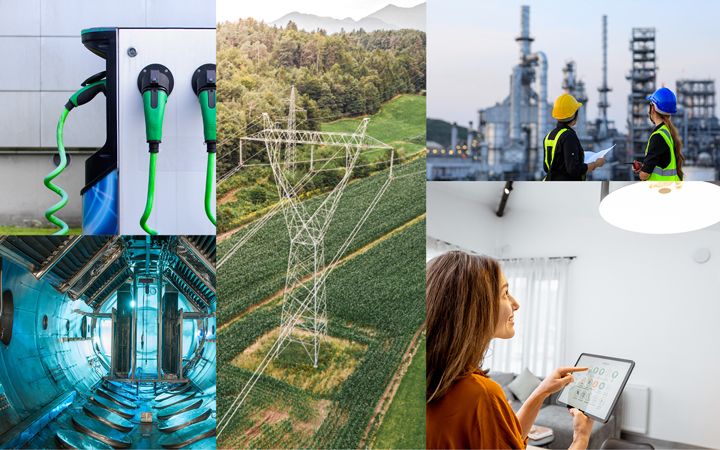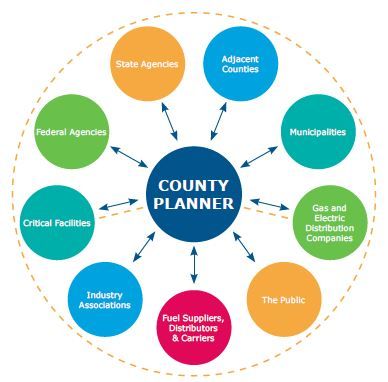
Bolstering Pennsylvania’s liquid fuel resilience
87%
62
We collaborated with Pennsylvania Department of Environmental Protection’s Energy Programs Office (DEP EPO) to develop liquid fuel shortage planning resources. We also conducted regional workshops across the Commonwealth to educate local emergency managers and healthcare facility operators on risks to the fuel supply chain and train them on how to utilize the planning materials.
Challenge
Liquid fuels are essential for the operation of transportation systems—including emergency response vehicles—and for backup power generation at healthcare facilities, water treatment plants, and other critical infrastructure during power outage events. At the same time, the complex supply chain that delivers liquid fuels is vulnerable to various threats and hazards. Such threats are increasing in frequency and magnitude, and many experts expect impacts from extreme weather events to further increase over time.
Although the Commonwealth of Pennsylvania has an Energy Security Plan, officials determined that more needed to be done to fully address the risks of fuel supply shortages and the role that local emergency planners play in responding to energy emergencies. As a “home rule” state, much of the initial responsibility for emergency response in Pennsylvania falls on county and local officials. The DEP EPO tasked us with developing comprehensive planning resources and training materials to help local emergency planners and healthcare facility operators better prepare for, respond to, and mitigate the impacts of fuel supply shortages.

Solution
We collaborated with officials at Pennsylvania DEP EPO to engage fuel industry stakeholders, including local emergency planners, critical facility operators, and the fuels industry to identify gaps in existing county-level planning and response; compile and evaluate best practices; and design effective strategies to address fuel supply shortages. Drawing on the information gathered from stakeholders and our extensive experience with energy markets and emergency planning, we developed two comprehensive liquid fuels shortage guidebooks—one for local governments and another for healthcare facilities—that outline best practices for energy assurance planning and response for medium-term fuel supply shortages (one to three days) and long-term fuel supply shortages (more than three days).
Each guidebook describes liquid fuel supply chains and identifies regional fuel resources, provides guidelines for engaging with energy sector stakeholders, prompts users to anticipate emergency fuel needs, and introduces strategies for strengthening fuel resiliency. To accompany the guidebook, we developed planning materials, including fuel shortage planning checklists and data collection templates to help local government and healthcare officials compile and assess information on critical liquid fuel needs.
To showcase the planning guidebook and materials and demonstrate their use, we hosted workshops for local government and healthcare officials. The workshops featured an overview of liquid fuels supply chains, discussions with members of the fuels industry, and tabletop exercises to demonstrate the use of planning tools and concepts, led by a facilitator trained in emergency preparedness exercises.
Results
The fuel shortage planning workshops that we conducted were well attended, received positive feedback, and are available online for ongoing training. Additionally, the materials developed for this project served as an impetus for DEP EPO’s new Energy Assurance and Resiliency website.